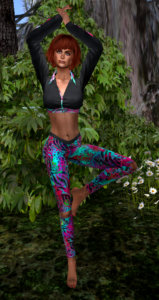
Science and medicine sometimes seem at odds. The health care practitioner seeks medicines and procedures that make people well and healthy. Science seeks to verify that medicines and procedures actually function as expected. The scientific process of doing multiple, well controlled studies takes a long time and often appears to hold back the availability of useful cures.
This situation is present not just for issues that suddenly appear and threaten whole populations, like the current COVID-19 pandemic and the quest for treatments and vaccines, but regarding medical practices that have existed for hundreds of years. There are many health care practices that are currently in use that have rarely been carefully verified. The reason they have not been is that their effects are complicated by the human tendencies to 1) heal over time without any external interventions, 2) respond differently due to many individual variables and DNA and 3) human faith in a change. The latter needs expansion. If we are sick we usually “get stuck” in our mind, we lose hope, become inactive. If we make a change, any change, and if we believe this change may help, then in many cases it will help. This psychological component of healing can often be very powerful. A person’s natural ability to heal and to believe that a change will help means that medical interventions that have subtle influences are difficult to assess as to effectiveness.
There are many health care professions and practices that fall outside the knowledge and training of your family physician. The National Center for Complementary and Integrative Health was established to provide an education channel about these “other professions and treatments” for conventional US physicians, other health care providers and the public. Health care practices and professions that are outside the usual medical education have been labeled as “complementary.” This is both a convenience and misleading as many complementary practices are part of the mainstream in other countries and have long traditions of use.
Some professions that are generally classified as complementary: Acupuncture, Ayurvedic, Chiropractic, Homeopathy, Hypnosis, Naturopathy, Reflexology, and many more.

Some treatments that are generally classified as complementary: herbs and herbal preparations, tai-chi, yoga, qi gong and other movement activities, meditation and other relaxation techniques, magnetic therapy, reiki, vitamins, and many more.
If you become interested in one of these areas how can you find out if they will be effective for your needs? There are web sites designed for the public and many are properly researched and offer useful information. To me, the best source however is the scientific literature. Before using something ask: What’s the science?
One can delve into the scientific literature via PubMed. This is a database of research articles maintained by the US National Library of Medicine and available to anyone on-line. One can structure searches on any health related topic and see the latest information.
For example. Below are three PubMed searches for research articles dealing with low back pain (a very common issue) as approached by three therapy methods:
References
- PubMed, National Library of Medicine, National Institutes of Health, U.S. Department of Health and Human Services. PubMed® comprises more than 30 million citations for biomedical literature from MEDLINE, life science journals, and online books. Citations may include links to full-text content from PubMed Central and publisher web sites.
- National Center for Complementary and Integrative Health, National Institutes of Health, U.S. Department of Health and Human Services. The NCCIH conducts and supports research and provides information about complementary health products and practices.
- Evidence-Based Medicine: Literature Reviews, National Center for Complementary and Integrative Health, National Institutes of Health, U.S. Department of Health and Human Services. Is there any scientific evidence that a particular complementary product or practice works and is safe? The resources on this page will help inform you about what the science says (limited to the past 5 years).
- Know the Science of Complementary Health Approaches, National Center for Complementary and Integrative Health, National Institutes of Health, U.S. Department of Health and Human Services, June 2020. Information about how to understand scientific studies.
 |
| Visits: 2 |
